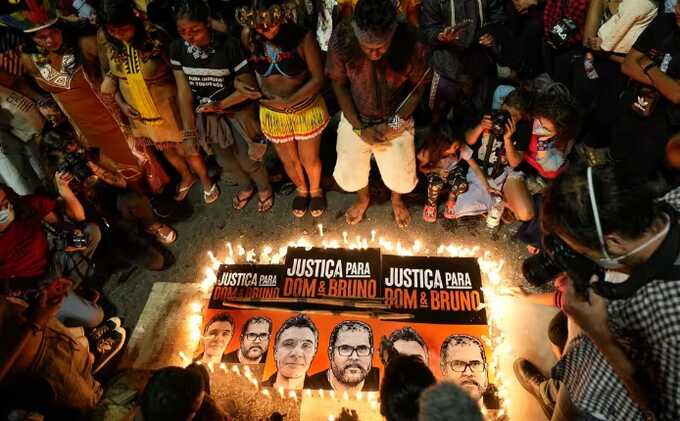
Unesco joint research dating back 15 years found violence and intimidation against about 750 reporters and 44 murders
More than 70% of environmental journalists have been attacked for their work since 2009, according to a Unesco report, which warns of rising threats against those covering the climate crisis.
At least 749 environmental journalists have faced violence and intimidation in the last 15 years, the UN body found. It said that 44 reporters were murdered between 2009 and 2023 but that resulted in just five convictions.
Unesco and the International Federation of Journalists, which jointly conducted the research, said that environmental journalism had become an increasingly perilous field. The often-remote and isolated nature of the work, and the subject matter reported on – including fossil fuel companies, mining firms, land grabbing and deforestation – contributed to the danger.
“Without reliable scientific information about the ongoing environmental crisis, we can never hope to overcome it. And yet the journalists we rely on to investigate this subject and ensure information is accessible face unacceptably high risks all over the world,” said Audrey Azoulay, director general of Unesco. “On World Press Freedom Day, we must reaffirm our commitment to defending freedom of expression and protecting journalists worldwide.”
Physical violence – including assaults, arbitrary detention, murder attempts and abductions – were the most common form of attack, and had risen significantly to 111 incidents in the past five years, up from 61 in 2014-2018 and 45 in 2009-2013.
Through consulting 905 environmental journalists from 129 countries, the survey found that 749 had been attacked, with state actors responsible for at least half of the violence. Male reporters experience all types of attacks more frequently than women apart from digital aggression, the report found.
While the murder of environmental journalists like Dom Phillips made international headlines, the survey indicated that attacks were becoming routine. There were 50 attacks a year on average between 2009 and 2023, with 300 attacks occurring in the last five years.
“Journalists are fundamental actors in informing our societies about the various angles of the environmental crisis, including climate change, combating the brutal levels of misinformation we have on these issues,” said Guilherme Canela, the lead report author for Unesco.
“All actors, especially public authorities, must urgently protect all journalists. Without this, our societies will not have access to accurate information to face the current environmental crisis,” he said.
Nearly half of respondents said that they had practised self-censorship due to fears of attacks or putting sources in dangers. The report authors said that governments must end impunity for attacks on environmental journalists, and called for increased safety training for reporters.
The report said: “In the face of the global environmental crisis, the importance of environmental reporting cannot be overstated, and thus advocacy groups, journalism networks, donors, multilateral organisations, and other stakeholders must emphasise the need for a free press and the safety of journalists.
“They should campaign for country-specific measures, including legislative reforms and policy changes.”